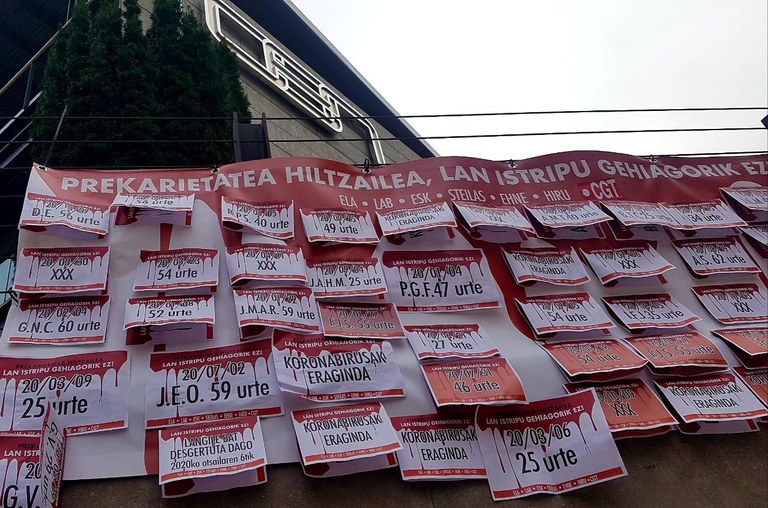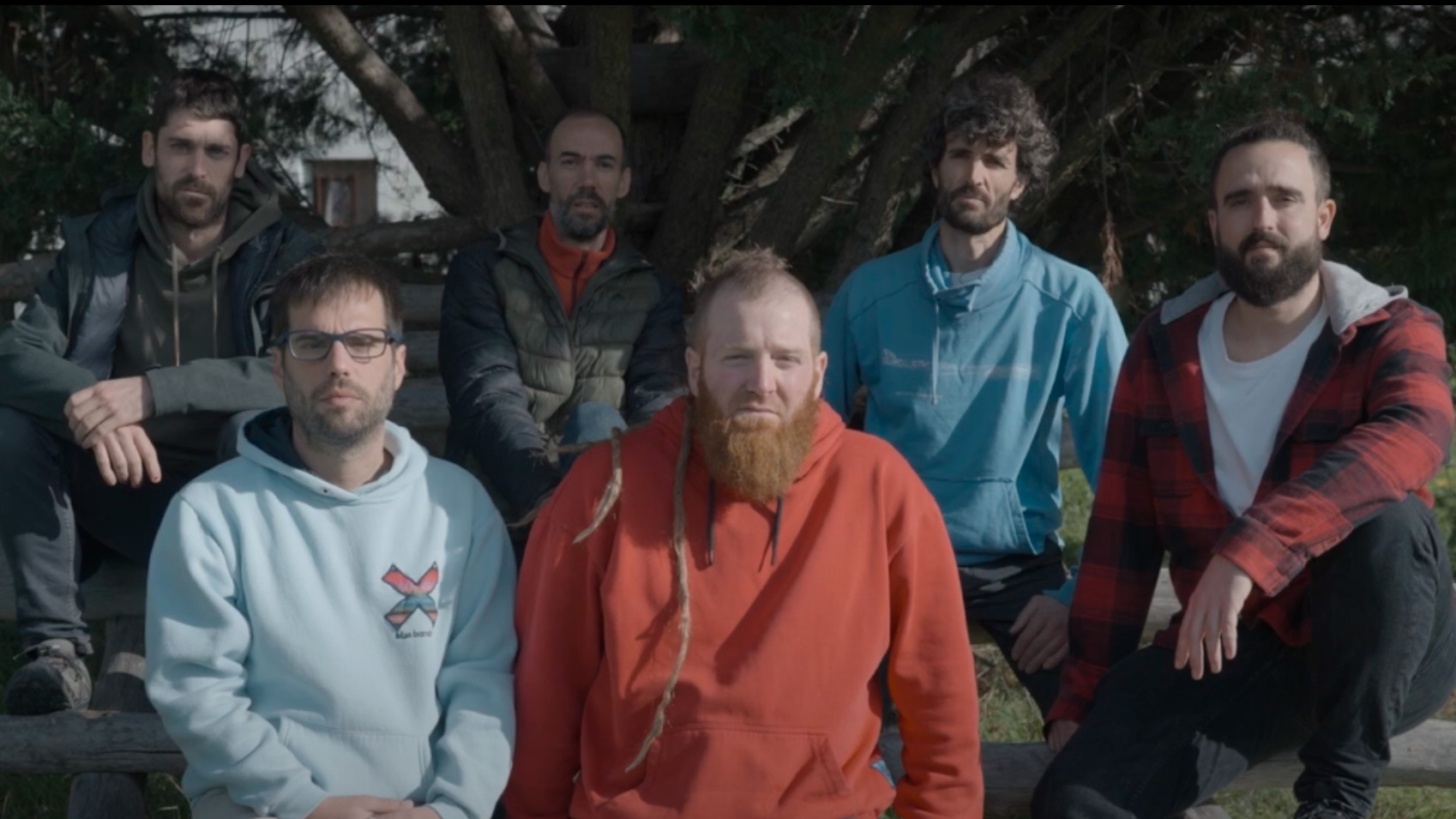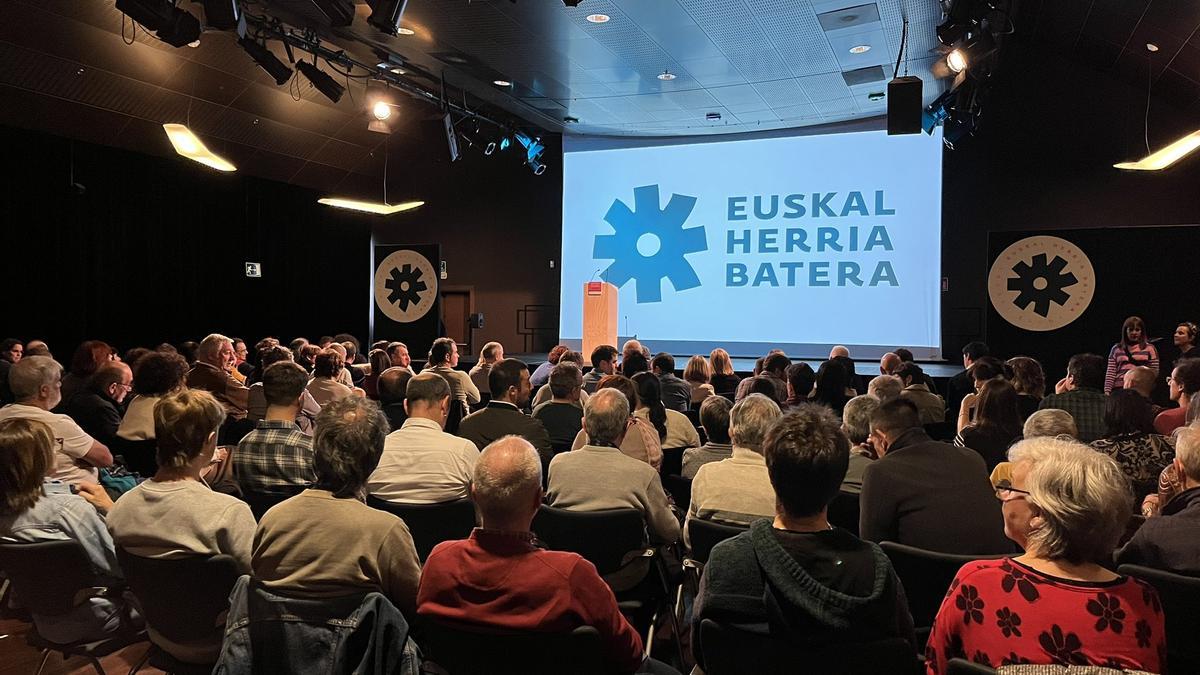Reflections following the withdrawal of Sacyr wind projects
The Official Bulletin of Navarre has recently announced that the Department of the Environment of the Government of Navarre has agreed the environmental impact resolution against the project of wind turbines promoted by companies of the Sacyr Group in the north of the County of Pamplona. With this decision, the Department declares that it is not possible to include this project in the area ' s environment. It is not known whether the Department of Economic and Business Development agrees with the decision and if it annuls the request for the construction of parks.
The Sacyr macro project affects the mountains separating the valleys of Erro, Steribar, Anue and Olaibar, where it plans to install 29 wind turbines with capacity to produce 141.7 MW of electricity. Wind mills would be one of the largest mills currently being installed, with a total of 200 meters (up to 127.5 axles and 72.5 blades each). In addition, the polygon empties its electricity with a high-voltage line crossing over 24 kilometres in Ezcabarte, Juslapeña, Berrioplano and Orkoien (220 kV).
The environmental conditions of this infrastructure would be high, as indicated in the claim submitted by Subai Erakuntza to the project, and as summarised in the Environment Resolution, would seriously affect the bird life threatened by the high risk of collision, a well-preserved and high-quality natural vegetation would be destroyed, with serious unduly analysed landscape impacts (the company only contemplates the height of the aerospace generating axis).
It is a clear example of the environmental impacts of renewable energies and their limitations. They need large areas of land for their implementation, which acts against biodiversity, as it is one of the 9 planetary boundaries, endangering the habitability of the planet. In addition, renewables also require mineral extraction between 8 and 25 times higher than the fossil counterpart, so they also contribute to exceeding the limit of these resources. And finally, they do not completely liberate us from fossil fuels, which are necessary for the production of infrastructures that capture energy from the sun or from the wind. Therefore, very strict conditions must be laid down to determine how many and where these infrastructures are installed.
However, in Navarre, the “planning” of these conditions is delegated to large companies. The various governments (both in Navarre and in the State) do little. It merely recommends the type of infrastructure to be installed, including the granting of aid. And so it is the big industries that run to install as many macro-projects as possible. The Administration will refuse, at most, some of these projects on the basis of environmental criteria, as is the case here.
It is absolutely damaging that the development of renewable energy comes from those who seek profits and dividends for their shareholders. It is unacceptable that those who feed the climate and resource crisis with their consumer production system should meet the energy needs of their citizens. Behind the renewable macro-projects are the multinationals that have a past of speculative movements, which destroy the environment with mining projects and large infrastructures, and with cases of corruption in which this company (together with others) has been involved.
We therefore have to be glad that the Environment Department has decided that the impacts of this project are high and not enough to recommend its non-implementation. But we cannot forget the possible influence of some worrying decisions taken recently for the future. What would have happened if this draft had been studied in accordance with the guidelines of the new decree approved by the Parliament of Navarre to respond to the consequences of the war in Ukraine? As is well known, under this special new legislation, the study times for such projects will be halved, both as regards public participation and the analysis to be carried out by the administration. If this project had been studied through this Decree, we are convinced that the report prepared by the Department of the Environment would be poorer and, therefore, there would be a greater risk of adopting a macro-polygon with serious environmental impacts.
We are at a worrying moment to protect the environment and the humans, animals and plants that inhabit it. A strong helplessness that can be aggravated by the application of exceptional laws and concerned manipulations of armed conflicts that justify the policy of the elimination of natural resources. At the same time, we are faced with a lack of political will to tackle at the root the need to change the energy model. It is not just a question of modifying the energy matrix, but of transforming the models of production, consumption, occupation of the territory and property.
To conclude these reflections, we cannot fail to mention the people and platforms that have been organized in the different valleys of Navarros against these solar and wind polygons, defending a more just energy model adapted to social needs. Thanks to all of them, multinationals that want to buy the will of people and the future of peoples have been turned away; dynamics of socialization and awareness have been created about the need for another energy and social model; and they have been the seed of local energy projects, more independent and integrated into the environments in which we live. Because thanks to all of them they are being a complete example of hope, of what we can achieve in an organized way.
(Martin Zelaia and Mikel Saralegi are members of the Subai Otsakar Foundation)
For pedagogical or methodological reasons, historians tend to fragment and divide historical periods of the past into deadlines. There are traditional times that we all know (Prehistory, Antiquity, Middle Ages, Modern and Contemporary Ages), but also several sub-ages.
These... [+]
Ander Magallon, Mikel Irure eta Xabier Jauregi Metropoli Forala saioan egon dira maskulinitate berrien inguruan mintzatzen.
Ander Magallon, Mikel Irure eta Xabier Jauregi Metropoli Forala saioan egon dira maskulinitate berrien inguruan mintzatzen.












.jpg)







